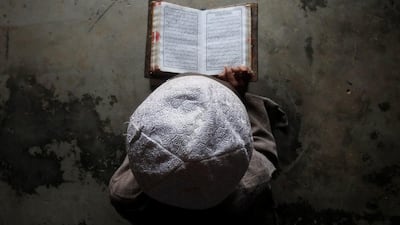As the Arab world approached Ramadan, Egyptians were met with the worst news. Scores of Egyptian Christians, peacefully travelling to a monastery in an isolated part of Minya south of Cairo, were massacred in an attack claimed by ISIL. A couple of days later, scores of Shia Iraqi children were massacred by ISIL, this time at an ice-cream parlour in Baghdad.
ISIL and its ilk are akin to heterodox cults and when it comes to Christians in Egypt or Shias in Iraq, they have made their position clear. Indeed, their murderous intentions apply far beyond those two groups. It must be said that the incitement to violence against Christians in Egypt or Shias in Iraq isn’t limited to ISIL.
In the aftermath of the attacks in Egypt and Iraq, many noted that pro-Islamist media in both countries promoted despicable messages. That sort of rhetoric cannot be allowed to go unchallenged.
The responsibility for the attacks lies with the perpetrators and those who facilitated their egregious crimes. The “background music” that dehumanises them isn’t directly responsible, and if we claimed otherwise, we would be denying agency to those who choose to carry out that rhetoric to this reprehensible conclusion. But that encouragement of different groups that regularly takes place in the pro-Islamist media cannot be ignored.
But at the same time, there is a wider question to be addressed around the flawed official efforts at social cohesion on the one hand, and the absence of a complete political ideology that fully incorporates different groups.
This is very different across geographies, and the solutions will have to be very specific on the ground.
In Egypt, for example, Coptic Church representatives and rights groups have insisted over the past few days that the Egyptian state has not been comprehensive in its approach to social cohesion, with problems that are deeply embedded.
Reconciliation committees, for example, that seek to reduce conflict in rural areas, particularly but not exclusively when Muslims and Christians are in dispute, operate outside of the normal practices of law and order.
Issues within the mainstream education system, which continues to suffer from substantial quality control problems, require widespread reform. These problems and issues do not force anyone into radical groups – but resolving those issues would certainly add yet another layer of immunity against radical recruiters.
In Iraq, it’s a different set of problems. Narrow identity politics are a product of a country that has suffered so much war and conflict over so many years. Indeed, that comes from Shia as well as among Sunni groups.
We must also recognise the deeply disturbing militias drawn from the Shia community as well.
Neither type of chauvinism should be allowed to survive unchallenged in a strong and cohesive Iraq, where Sunnis and Shia live with dignity.
The commonalities between Egypt and Iraq are few in terms of the specific problems they face, but there is one common issue that ought to be addressed. It is an issue that is about the respect for pluralism that is the bedrock of the Arab world?
It must be recognised that a genuine political accommodation is needed, rooted in real ideas to define the relationship between those ruling in the region and the ruled.
Many would describe it as citizenship – but whatever one calls it, what is that relationship?
What is the basis of the social contract for Arabs at large today – for those belonging to the majority religious group, for those who belong to minority religious groups?
If pluralism and respect is meant to be intrinsic to the answer, which I suspect it is, then how is that manifested? And who has the will to actually take it forward?
It is difficult to talk about these issues – because the Arab world is in the midst of so many conflicts, challenges and arguments from within. But it cannot ignore this question.
When the dust truly settles and terrorism subsides, as eventually it will, the region will still have monumental problems to face. It will need those answers around how to engage with the state – what the nature of the social contract is – and so forth. It can either sleep walk into the world of identity politics indefinitely or it can carve out a better route.
It is not enough that the Arab world merely survives ISIL, because that is a foregone conclusion. It must thrive, far beyond that victory.
Dr HA Hellyer is a senior non-resident fellow at the Atlantic Council in Washington and the Royal United Services Institute in London
On Twitter: @hahellyer


